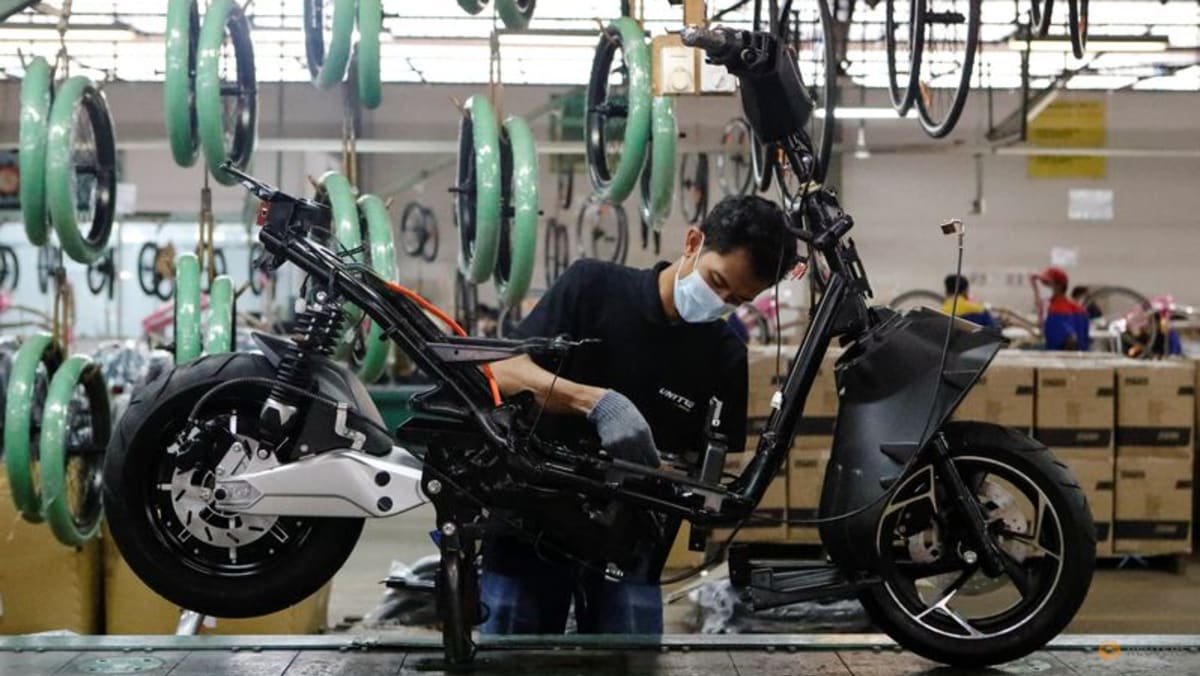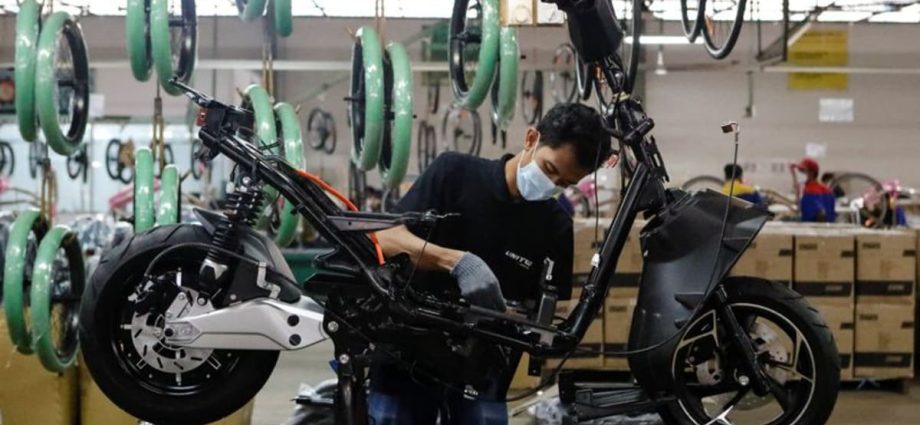
The main basis for the policy change is to accelerate the building of an electric vehicle (EV) ecosystem in the country and create a cleaner Indonesia, Mr Kartasasmita said.
“This goal, of course, will have an impact on increasing investment, spurring industrial productivity and competitiveness, as well as expanding the workforce,” he was quoted as saying by Antara.
Indonesians whom CNA spoke to remain uninterested in purchasing the electric two-wheeler, with many citing the high costs as well as unfamiliarity with brands in the market as a deterrent despite the subsidy expansion.
Mr Agung Purwadi, who lives in Bekasi, said that purchasing an electric motorcycle is out of his budget. He added that the battery pack used to power electric motorcycles may lose capacity over time and that they cannot be charged everywhere.
“The motor is also not rigid and unstable. Resale is difficult and the resale price is (also lower). After-sales (service) is also not guaranteed such as the availability of spare parts,” Mr Purwadi told CNA.
The high cost is also deterring another Indonesian resident from switching over from the conventional fuel-based motorcycle to the environmentally-friendly alternative.
Mr Suryadi, who like many Indonesians goes by one name, said: “I’m not interested in buying it as the price is still too high. Also, the brand is not familiar (to me), I’ve only just heard of it.
“Where can I find spare parts if something breaks? It’s different if it’s a well-known brand like Honda, Yamaha or Suzuki. With the economy as it is now, it doesn’t make sense at that price,” added the resident from Subang, West Java.
Checks by CNA showed that electric motorcycle brands in Indonesia include local brands such as Viar, Selis, Gesits and Alva as well as China’s Wuling, among others. Prices for these electric motorcycles range from 4.8 million rupiah to 37.75 million rupiah.
Meanwhile, Mr Eka Indra, who lives in Bogor noted that the electric motorcycle may not be able to support his weight, in addition to that of a passenger’s.
He added that the quietness of the vehicle may also pose a safety risk.
“I will not buy an electric motorcycle even though my wife wants it. Judging from the physicality of the EV, I don’t think I will be able to ride it. I weigh 116kg, not to mention my wife. I doubt that the bike would be able to carry me, especially on climbs.
“Another concern is that this electric motorcycle has no sound because as a person who has been riding a motorcycle for a long time, in addition to the rearview mirror, we also have to hear the sound of the motorcycle to maintain the driving safety,” he said.
Mr Isa, who resides in Depok, expressed his wariness on whether an electric motorcycle is truly an environmentally-friendly alternative.
“I think as long as the electricity is still generated by electric steam power plants (which) still uses coal, it may not even have a significant impact. Not to mention the problem of EV battery waste that cannot be recycled.
“The policy should be to improve and cheapen public transport so that people can change their behaviour from taking private vehicles to public transport,” he said.

